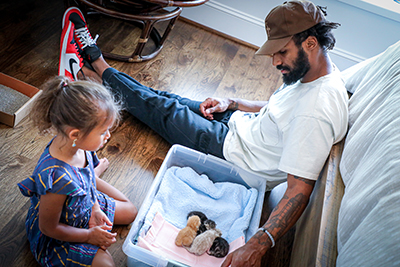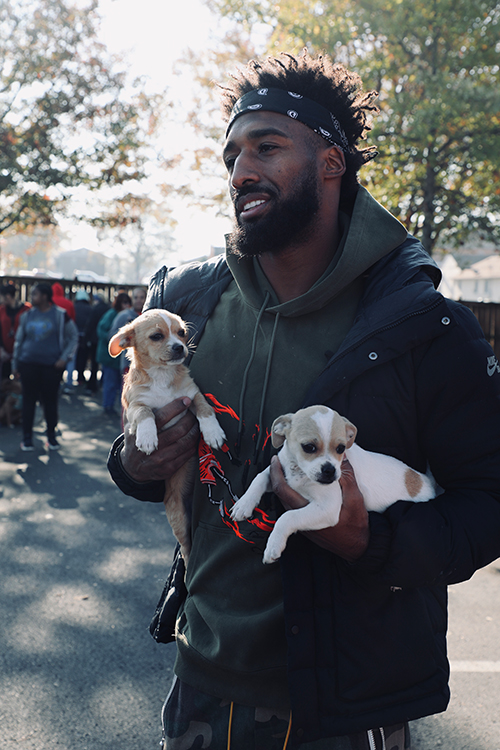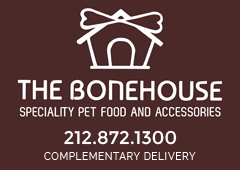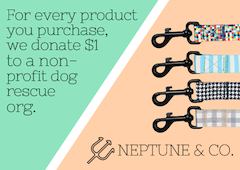
★ON-Line Exclusive★
Super Bowl Champ Lends A Helping Hand
Logan Ryan Champions The Underdog
By Melanie Carden
There’s a wee-bitty kitten screaming for help as the Zoom interview begins. NY Giants cornerback and two-time Super Bowl Champion Logan Ryan scrambles from his seat to its rescue. One of four foster kittens that he and his family are caring for needed him. Ryan, mid-sentence, raced off-screen. He dropped everything—including any stereotypical football persona—to lend a gentle, helping hand. That’s everything you need to know about him in a nutshell, but there’s so much more.

“It’s best to ignore the street dogs,” the photographer cautioned. Ryan and his wife Ashley—pronounced man and wife just hours before in St. Lucian town of Soufriere—strolled the Island streets for a wedding photo session. Rather than ignore the homeless dogs, they rescued them. All of them.
This is who they are—unyielding in their passion for animal rescue and magnificently humble. In 2013, when Ryan played for the Patriots, Ashley devoted her time to dog shelters. The couple began featuring a dog monthly on the star’s social media. In two years, they placed over forty dogs in forever homes. Telling the couple to ignore the street dogs is the advice given to most people on vacation islands, but Logan and Ashley Ryan aren’t most people. Instead of gifts, they asked friends and family to make donations to Soufriere’s animal shelter, combining that with a donation of their own. The shelter was able to help all the street dogs—over fifty animals. Though admittedly a temporary fix, it set into motion the Ryan Animal Foundation (RARF).

Since its start in 2017, RARF expanded its monthly rescue features to offer grants, seminars, and training. To date, the organization has contributed $250,000 to animal welfare. A fundraiser in May was a fitting farewell as Ryan concluded his time with the Tennessee Titans—RARF donated $26,000 to the Nashville Humane Association.
Ashley Ryan has dedicated years to rescue work in multiple states, adding to that animal behavior studies as a certified professional dog trainer. Together, Ashley and Ryan are looking past the immediate goal of animal placement to address factors that contribute to re-homing—when animals are given up for adoption. Campaigns fund dog playgroup analysis and staff training to ensure the best possible pet placements. Classes teach families to successfully bring together dogs and children. RARF also prioritizes rehabilitation for shelter dogs. Although shelters go to great lengths to care for their dogs, it is nonetheless psychologically difficult for the pups, who may regress into challenging habits. Rehabilitation can ease a shelter pup’s stress and promote effective forever home placement.
This fall, the foundation unveils a re-brand launch. Their logo, web presence, and merchandise will embrace their unique animal rescue identity—young, hip, and diverse. The foundation “is based on our life,” says Ryan. With two children, three dogs, and four rescue kittens, they are leading by example. The updated look will put that in the spotlight, positioning animal rescue as more than a one-time good deed—but as a part of our culture, a way of life.














